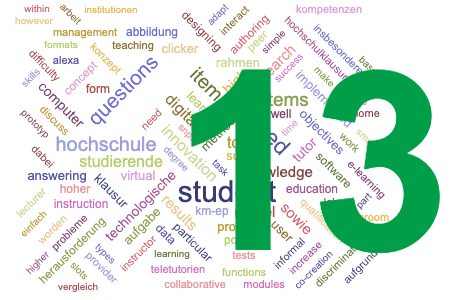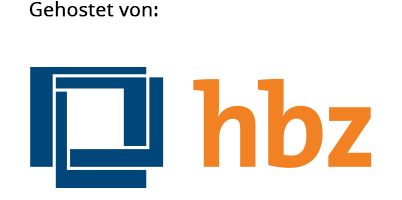Entwicklung einer innovativen Autorenumgebung für die universitäre Fernlehre
Keywords:
Autorenumgebung, Bologna-Reform, Kompetenzmanager, Kompetenzprofilmanager, e-learning, hochschulübergreifende Vergleichbarkeit von Qualifikationen, qualifikationsbasiertes Lernmodell, universitäre LehreAbstract
In 1999, the European higher education reform was signed in Bologna, Italy, the city after which it was named. Its aim was in part to simplify the comparability of qualifications (of degrees as well as modules) within Europe. However, rather than improving the com- parability of higher education institutions, the situation has become more the opposite since Bologna came into effect. In particular, as a result of the still lacking standardisation in the description of qualifications and the clear increase in new courses and students enrolled. Upon closer inspection of the problem faced by higher education institutions since Bologna, and in particular upon more precise examination of the infrastructure of higher education institutions, further problem areas have been identified, which, combined with the problems of poor comparability of qualifications, have led to the research objectives of this work. The first research objective was to provide a model that allows comparability of the qualifications of degree programmes, modules, and courses across higher education institutions. The second research objective was to provide simple and convenient authoring tools to create qualification-based courses, and the third was to provide qualification- based authoring tools for simple and convenient degree programme creation. For research objectives two and three, as well as supporting the producer’s perspective, the consumer’s view should also be considered and implemented prototypically in approaches particular in order to also be able to document and carry out degree programmes, modules, and courses by consumers. The Learning Management System Moodle was selected as the target system for the authoring tools for courses. For the first research objective, through the use of the Qualification Based Learning Model (QBLM), a model was developed that builds on existing models and enables the comparability of qualifications. To achieve the second research objective, the Knowledge Management Ecosystem Portal (KM-EP) was identified as the most suitable platform, in particular as it already offered simple and convenient authoring tools for courses, and, thanks to its modular structure, was well suited to the development of open challenges for research objectives two and three. In order to achieve the second research objective, two tools were designed and developed as an open challenge with the competence manager and competence profile manager, which make software-supported use of qualifications in line with the QBLM at higher education institutions possible in the first place. A further remaining challenge with the second research objective was to extend the existing authoring tool for KM-EP courses in order to create qualification-based courses, i.e. to be able to provide them with learning objectives as well as admission requirements in the form of competence profiles. In the context of the third research objective, it was not possible to identify suitable authoring tools for study programmes, which is why they were designed and developed from scratch. For consumers tools have been developed for research objectives two and three to enrol students, enrol in study programmes, choose courses, and view the progression of their own learning. The authoring tools for degree programmes, modules, and courses were examined after the development in the initial evaluation within the Cognitive Walkthrough, whereby all authoring tool errors and suggestions for improvement were identified. They were subsequently resolved and thus led to error-corrected and optimised tools. The authoring tools for courses were then contrasted with Moodle’s authoring tools in a final comparative evaluation to clarify whether the KM-EP’s tools for courses do indeed offer a simpler and more convenient way of creating skill-based courses than traditional authoring tools. The result was that the KM-EP authoring tools for courses made the processing significantly quicker and was judged to be simpler and more convenient if improvement potential was identified at the same time. For research objective one, the objective of making possible the comparability of qualifications with QBLM was achieved, as well as the authoring tools provided for research objectives two and three, to enable the software-based use of qualifications as well as the simple and convenient creation of skill-based degree programmes, modules, and courses. This lays the foundations for addressing the issue of comparability of qualifications between higher education institutions across the EU.Downloads
Published
2020-02-06
Issue
Section
Dissertations



